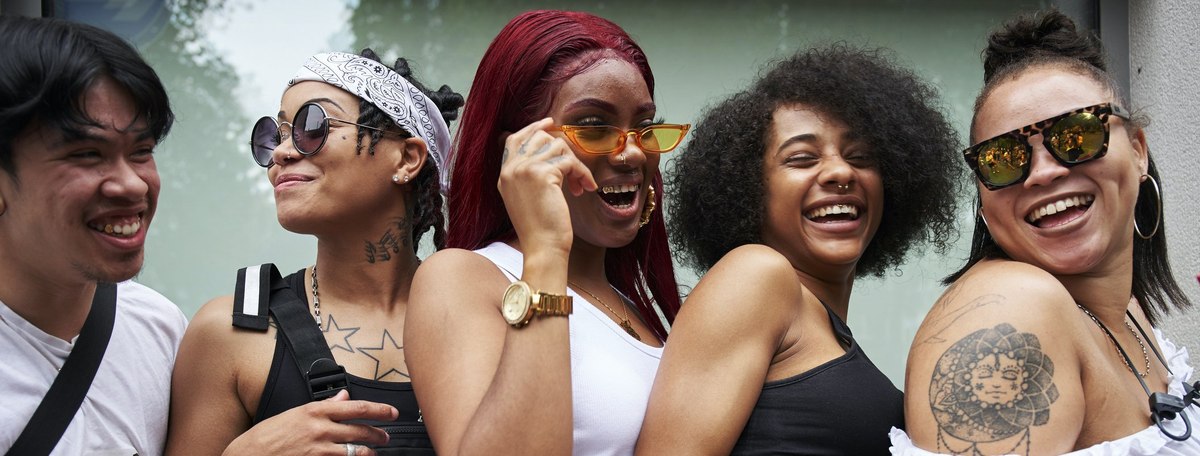In the first days of his administration, President Joe Biden issued several executive orders affecting specific social groups in America, some of which were moves to overturn Trump-era policies. Some say the new president is changing the previously “toxic tone” of the Oval Office, but not everyone agrees on whether these changes will have a notable impact on different communities within the US.
Democrats tend to believe things will either get better or remain the same for many of the social groups YouGov asked about in this survey, spanning different races, religions, and sexual orientations. Republicans tend to be less optimistic about the plight of different communities over next few years, perhaps in part because they generally do not approve of Biden and his policies.
Do Americans think things will get better or worse for immigrants?
About four in 10 (41%) Americans expect that things will get better for immigrants in the US over the next few years, likely because Biden’s immigration policies are much different from those of his predecessor, Donald Trump. In his first days as president, Biden announced plans to provide eligible undocumented immigrants with a path to citizenship and preserve the Deferred Action for Childhood Arrivals (DACA) program, among other immigration-related initiatives. This came as a stark contrast to Trump’s immigration policies, which included attempts to build a wall on the U.S.-Mexico border and end the DACA program.
Americans don’t tend to think things will change much for native-born US citizens over the next few years (41%). About a quarter (24%) foresee things getting better, while one in five (18%) think things will get worse.
Republicans are more likely than other Americans to think things are going to get worse for native-born US citizens. At 37% they are as likely to say this as they are to think things will stay unchanged (36%). Relatively few (13%) believe things will get better for this group.
Do Americans think things will get better or worse for racial minorities?
In the wake of George Floyd’s death during a police encounter last summer, many Americans vocalized their support for the Black Lives Matter movement and began engaging on topics of racial justice. It’s possible that this widespread attention to the BLM movement, as well as Biden’s campaign promise that he will support Black communities may have led many Americans to believe things will improve for Black people living in the US.
Two in five (41%) Americans believe that things will get better for Black people living in the United States. Relatively few (11%) think things will get worse, and 29% anticipate things will stay about the same. The figures are similar when Americans are asked about Hispanic populations: 35% think things will improve, 11% see things getting worse, and 33% anticipate no major changes.
Slightly fewer believe that things will markedly improve for Asian people (26%), Middle Eastern people (26%), and Indigenous people (25%) living in the United States. Relatively few (between 12% and 13%) believe things will actively get worse for these racial groups, and about three in five think things will stay about the same.
About one in five (20%) think things will get better for white people over the next few years, but a roughly equal percentage (22%) say things will get worse. Far more (39%) think things will stay about the same for this group over the next few years.
Republicans (48%) are far more likely than Independents (25%) or Democrats (7%) to believe things will actively get worse for white Americans in the near future.
Do Americans think things will get better or worse for women and men?
The #MeToo movement, which encourages people to speak out against sexual harassment and sexual abuse, has also experienced a resurgence in recent years. Women have been encouraged to speak up about their experiences with sexual harassment and abuse, in order to communicate the magnitude of these issues and potentially bring people to justice. Some have criticized the movement for going too far or for having a disproportionally negative impact on people who commit relatively minor acts of misconduct.
This cultural reckoning may be part of why Americans tend to believe things will get better for women, but not necessarily for men.
The most common answer from US adults is that things will get better (40%) for women over the next few years. Slightly fewer (31%) think things will stay about the same, and 17% think things will get worse. Men (42%) are slightly more likely than women (38%) themselves to believe things will improve for women. Democrats (58%) are far more likely than Independents (32%) and Republicans (22%) to think so.
It’s a different story when it comes to men. Far fewer (17%) forecast things getting better for men over the next few years. But only 23% think things will get worse; close to half (46%) think they will stay approximately the same.
Men (30%) are almost twice as likely as women (17%) to say they think things will get worse for men in the near future. Just over one-third (35%) of Independents and even more (43%) Republicans say they anticipate things getting worse for men.
Democrats’ belief that things will get better for women (58%) may also have to do with a changing political landscape. Former President Trump was accused of sexual misconduct by several women – though it should be noted that there have also been similar allegations levied against Biden.
Do Americans think things will get better or worse for LGBTQ+ communities?
Americans tend to believe that things will get better for lesbian and gay people (38% predict improvement), as well as transgender people (38%) living in the US.
This may also be a result of a changing administration. Shortly after his inauguration, President Biden issued an executive order extending nondiscrimination protections to LGBTQ+ people. He also overturned a policy put in place by the Trump administration, which had largely banned transgender people from serving in the US military.
Democrats are especially likely to forecast brighter days ahead for gay and lesbian people (47%) and transgender people (45%). Among Republicans, the most common view is that things will stay about the same for gay and lesbian people (31%), bisexual people (35%), heterosexual people (40%) and cisgender people (32%). About one in five Republicans says that they don’t particularly care whether things get better or worse for transgender people (19%), lesbian or gay people (17%), or bisexual people (17%).
While 40% of Republicans think things will stay the same for heterosexual people, 31% think things are going to get worse for this group. Relatively few Independents (16%) or Democrats (3%) agree with this prediction.
Do Americans see things getting better or worse for different religious groups?
Over the next few years, 28% of US adults predict things will get better for Muslim Americans. As is the case for several other social groups, this may be at least partly attributed to shifting priorities among the federal administration. While Trump instituted measures to prevent entry to individuals from several Muslim-majority and African countries, Biden reversed these policies almost immediately after taking office.
About as many (30%) think things will stay approximately the same for Muslims living in the US. Another 16% think things will get worse.
As for other religious groups, the most common prediction is that things will stay about the same. However, about one-quarter (25%) think things will get worse for Christians, and 22% say the same about Jewish people.
Nearly half (49%) of Republicans say things will get worse for Christians living in America. About four in 10 (38%) Independents agree, while far fewer Democrats (7%) say the same.
Do Americans think things will get better or worse for rich, middle-class and poor Americans?
For most of the social groups YouGov surveyed Americans about, people were more likely to foresee things getting better rather than worse. But this wasn’t the case when we asked about the future of the middle class or poor people.
By 37% to 22%, Americans say things will get worse, not better for middle-class people over the next few years in America. For poor people, Americans are also likely to see things getting worse (39%) instead of better (30%).
As ever, Republicans and Democrats don’t see eye-to-eye. A majority of Republicans believe things will get worse for poor people (57%) and middle-class people (56%) over the next few years. Among Democrats, far fewer think things will get worse for poor people (28%) or middle-class people (20%).
For the most part, there is bipartisan agreement that things will get better or at least stay the same for rich Americans.
Those with an annual household income of more than $80,000 are especially likely to be optimistic about how poor Americans will fare in the near future. About four in 10 (37%) think things will get better for poor people. Americans who earn between $40-80,000 a year are less likely (25%) to share this prediction, and 29% of those earning less than $40,000 agree.
Do Americans think things will get better or worse for people with disabilities?
About one-third (32%) of US adults think things will get better over the next few years for Americans with disabilities. Slightly more (36%) think things will stay about the same, and 17% believe things will get worse. As is the case for most of the groups surveyed, Democrats (48%) have a more optimistic prediction than Independents (22%) or Republicans (16%).
For people without disabilities, 43% think things will stay about the same. Nearly one-quarter (23%) think things will get worse, and 20% believe things will get better.
See full results here.
Related: Black Americans believe activism is uniting the country, but white Americans don’t agree
Methodology: Total sample size was 1,318 US adults. Fieldwork was undertaken between February 2 – 3, 2021. The survey was carried out online. The figures have been weighted and are representative of all US adults (aged 18+).
Image: Getty












